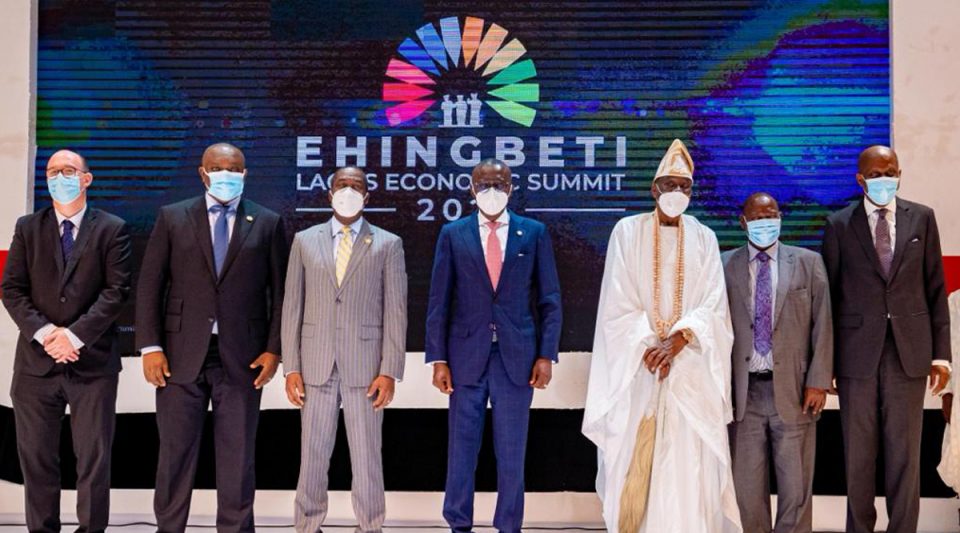Gov. Babajide Sanwo-Olu of Lagos State has promised to continue to provide capital to new businesses and SMEs to boost their start-up capacity and sustain them.
Sanwo-Olu made the pledge during the closing ceremony of the three-day 8th Ehingbeti Summit in Lagos on Thursday.
The theme of the summit was “For a Greater Lagos: Setting the Tone for the Next Decade”.
The governor, who joined virtually after a National Economic Council meeting in Abuja, said the summit was an eye opener for the government on ways to forge ahead for a successful roadmap and a prosperous economy.
Sanwo-Olu urged the private sector and civil society organisations to collaborate with government for a greater Lagos.
He explained that the state would continue to deepen SMEs through existing and new programmes at the Lagos State Employment Trust Fund ( LSETF) and Lagos State Science Research and Innovation Council (LASRIC).
According to him, the state will also boost capital to SMEs through the Ministries of Wealth Creation, Women Affairs and Poverty Alleviation (WAPA) Youth and Sports Development and welcome collaborators to work with them.
Sanwo-Olu assured that the state government would not rest on its oars in taking into consideration, all the resolutions reached at the Ehingbeti summit.
“With the various think tanks at the just concluded summit and the need to rebuild Lagos and place it in that enviable pedestal, it is of utmost importance that the state government needs to walk the talk for a greater Lagos, the Lagos of our dreams,” he said.
The three-day summit ended with a review on how to chart a way forward in every sector for a better economy of the state.
Panelists commended the Lagos state government for its drive in making the state attractive, secure and an opportunity hub not only in Nigeria but West Africa.
They spoke on sustainability, resilience and impact for a greater Lagos and delved into ways to ensure that the state became more attractive and secure for all.
It was resolved that there was need to harness the power of the youths and to put policies and programmes in place to unleash the potentials of the teeming youth population.
They stressed that policies must be robust and treat the youths as assets and concerted youth-focused capacity building in digital literacy, STEM, the arts, entertainment, sports and other sub-sectors must be created by the government in partnership with the private sector.
The panelists recognised that the youths were different and capable of making their own way in the world – therefore, government must seek to understand them and how to adequately support them.
They noted that there was need to improve the state education system through a thorough overhaul of the curriculum with a view to providing an education that met 21st Century realities, thereby reducing youth unemployment.
All parties stressed the importance of and renewed commitment to improved partnerships and collaboration across national, state and other sub-national governments, the Private Sector, Civil Society and the international community.
These conversations brought together citizens, captains of industry, sector experts, Royal Fathers and traditional leaders.
Others were development partners, the international community, civil society organisations and other critical stakeholders from all over the world.




